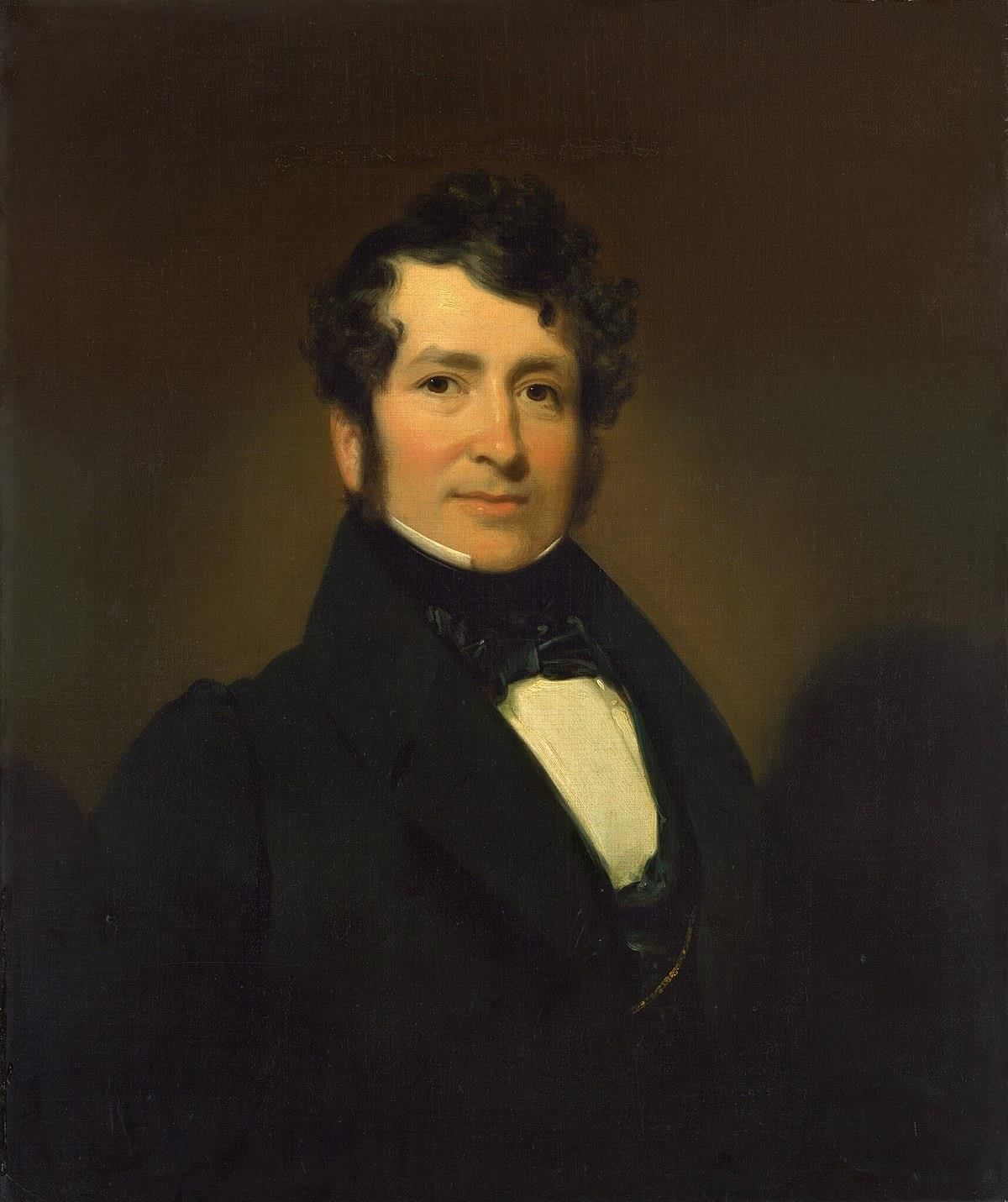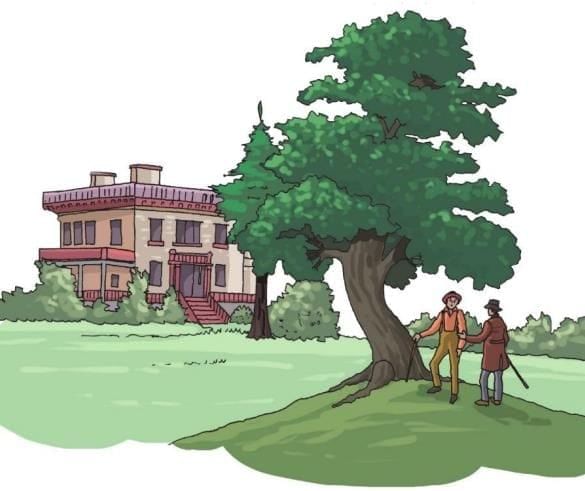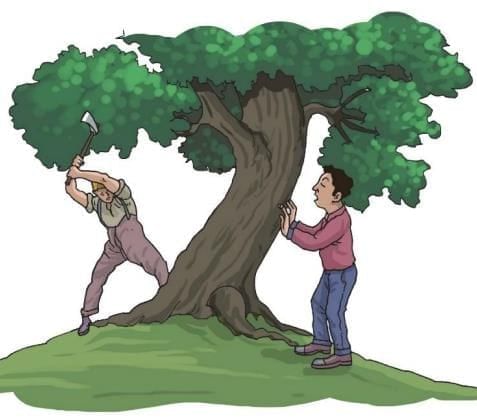Summary: Woodman, Spare That Tree! | English Class 6 ICSE PDF Download
| Table of contents |

|
| Introduction |

|
| Key Points of the Poem |

|
| Summary |

|
| Message |

|
Introduction
George Pope Morris, a well-known American poet and songwriter, wrote the poem Woodman, Spare That Tree! which was first published in 1837. Later, it was set to music, becoming a popular song of its time. This poem is considered the first environmental protest song, as it speaks about protecting nature, specifically an old oak tree, from being cut down. The poem expresses deep emotions tied to family memories and the importance of preserving nature.
 George Pope Morris
George Pope Morris
Key Points of the Poem
- The poem is about a man asking a wood cutter not to cut down an old oak tree.
- The tree was planted by the man's ancestor and gave him shelter when he was young.
- The tree holds many happy family memories for the man.
- The tree is tall and well-known, and the man wants to protect it.
- The poem shows strong feelings for nature and asks to let the tree live on.
Summary
Stanza 1
Woodman, spare that tree!
Touch not a single bough!
In youth it sheltered me,
And I'll protect it now.
'Twas my forefather's hand
That placed it near his cot;
There, woodman, let it stand,
Thy axe shall harm it not.
This stanza shows the speaker asking the wood cutter to not hurt the tree or any of its branches. The tree kept him safe when he was young, so now he wants to keep it safe. His ancestor planted it near their home, so he tells the wood cutter to leave it alone and not use the axe on it.

Stanza 2
That old familiar tree,
Whose glory and renown
Are spread o'er land and sea
And wouldst thou hew it down?
Woodman, forbear thy stroke!
Cut not its earth-bound ties;
Oh, spare that aged oak,
Now towering to the skies!
This stanza talks about the old tree that everyone knows, with its fame known far away over land and water. The speaker asks if the wood cutter really wants to chop it down. He tells the wood cutter to stop swinging the axe and not cut the roots that hold it to the ground. He begs to save the old oak tree that is now very tall, touching the sky.
Stanza 3
When but an idle boy,
I sought its grateful shade;
In all their gushing joy
Here, too, my sisters played.
My mother kissed me here;
My father pressed my hand
Forgive this foolish tear,
But let that old oak stand.
This stanza recalls when the speaker was a lazy boy and sat under the tree's cool shade. His sisters played there happily with lots of fun. His mother gave him kisses under it, and his father held his hand. He asks to forgive his silly tear from these memories, but begs to let the old oak stay standing.
Stanza 4
My heartstrings round thee cling,
Close as thy bark, old friend!
Here shall the wild-bird sing,
And still thy branches bend.
Old tree! the storm still brave!
And, woodman, leave the spot;
While I've a hand to save,
Thy axe shall harm it not.
This stanza says the speaker's deep feelings hold on to the tree tightly, like its bark. He calls it an old friend where wild birds will sing, and branches will keep bending. He tells the tree to face storms bravely. He asks the wood cutter to go away from the place, and as long as he can help, the axe will not hurt the tree.

Message
The poem teaches us to care for old trees and nature because they hold special memories and are important for the world. It shows we should stop harming them and protect what our families left for us.
New Words with Meanings
- Woodman: A person who cuts down trees for wood or fuel.
- Spare: To not hurt or destroy something.
- Bough: A big branch on a tree.
- Forefather: An older family member from long ago, like a grandfather's grandfather.
- Renown: Being famous or well-known.
- Hew: To cut or chop with an axe.
- Forbear: To hold back or not do something.
- Gushing: Full of excitement and happiness.
- Heartstrings: Deep feelings of love and care inside a person.
|
38 docs|19 tests
|
FAQs on Summary: Woodman, Spare That Tree! - English Class 6 ICSE
| 1. What is the main theme of the poem "Woodman, Spare That Tree!"? |  |
| 2. Who is the speaker in the poem, and what is their emotional state? |  |
| 3. How does the imagery in the poem enhance its message? |  |
| 4. What literary devices are used in "Woodman, Spare That Tree!"? |  |
| 5. What is the significance of the title "Woodman, Spare That Tree!"? |  |




















